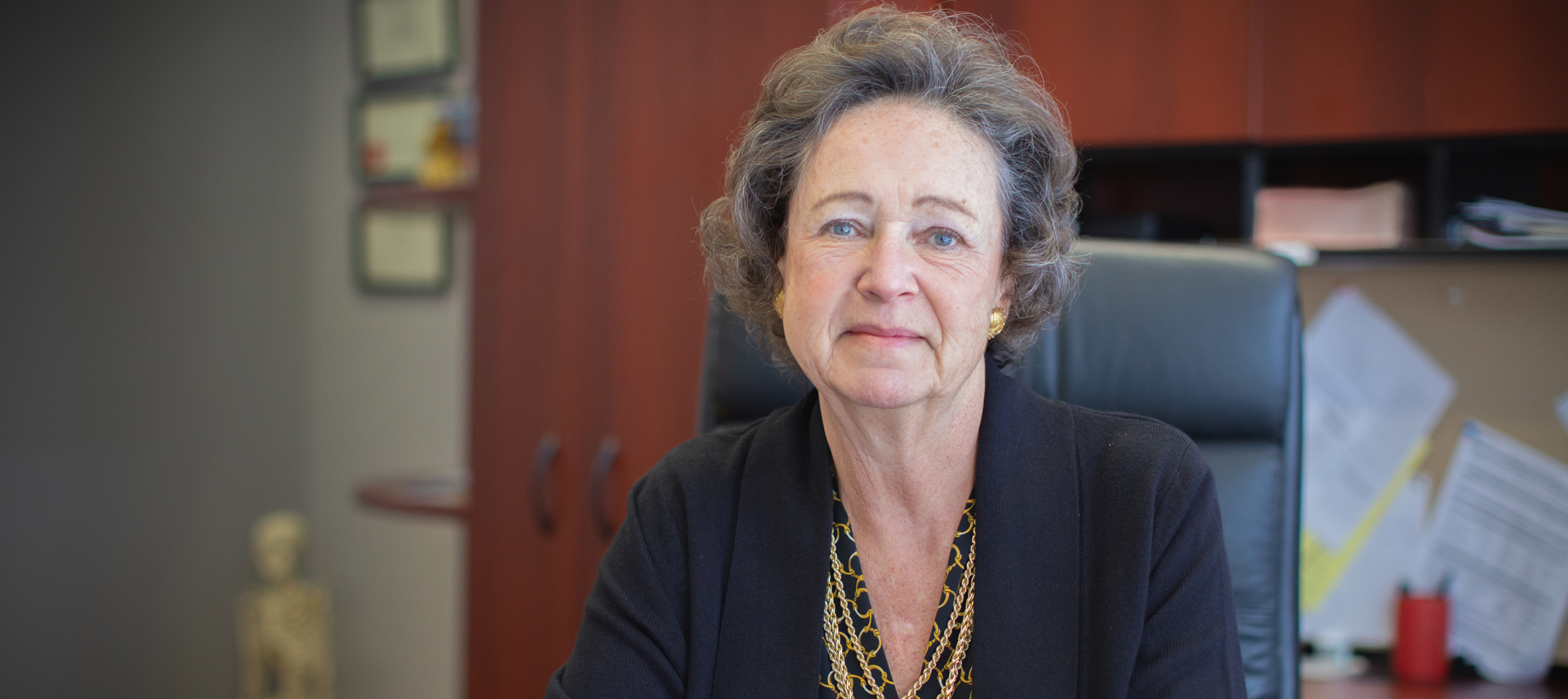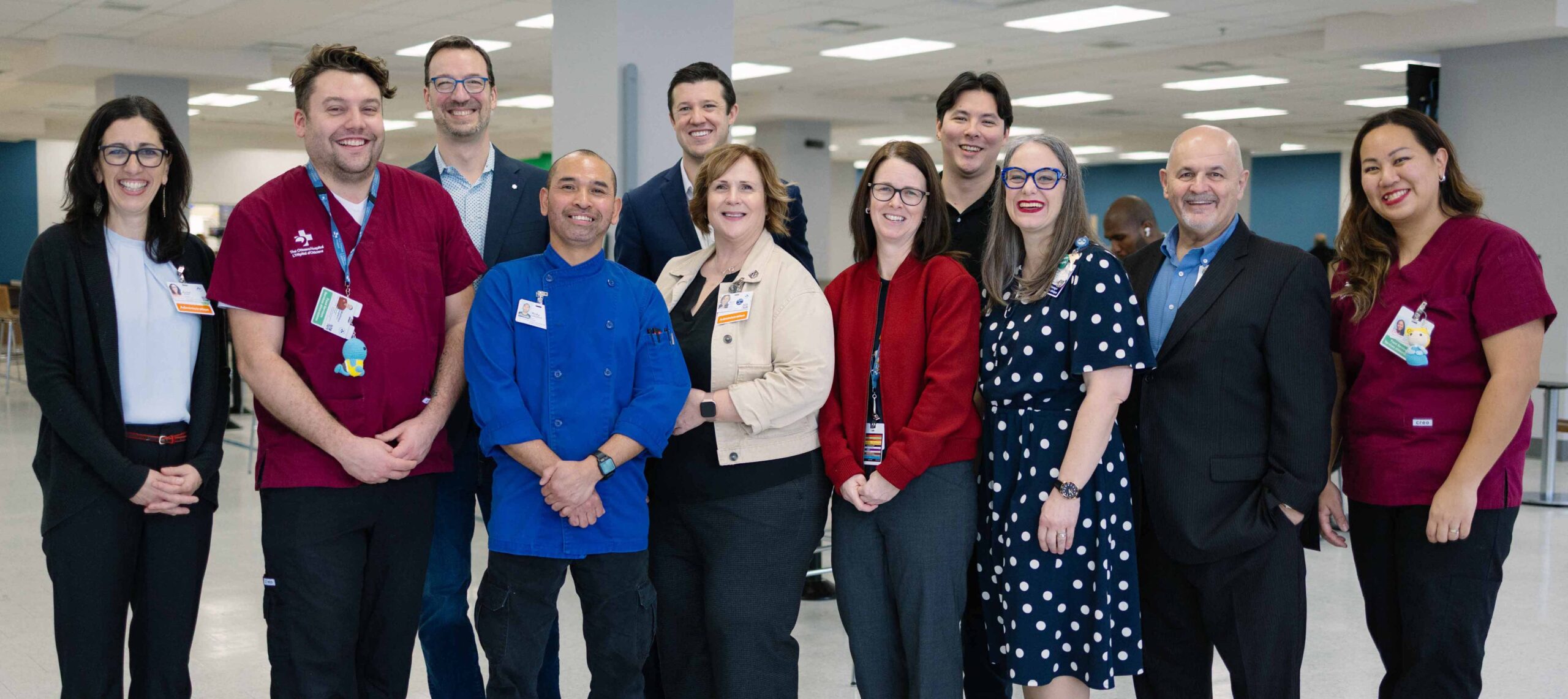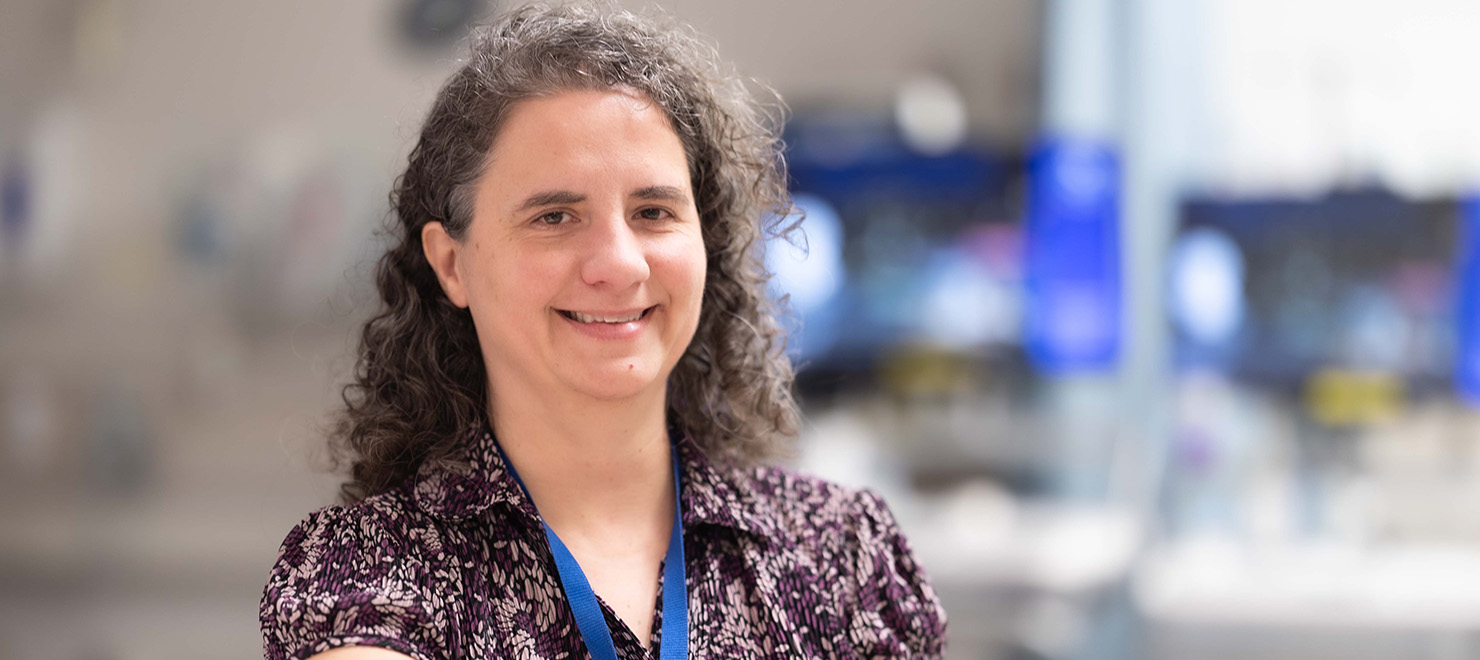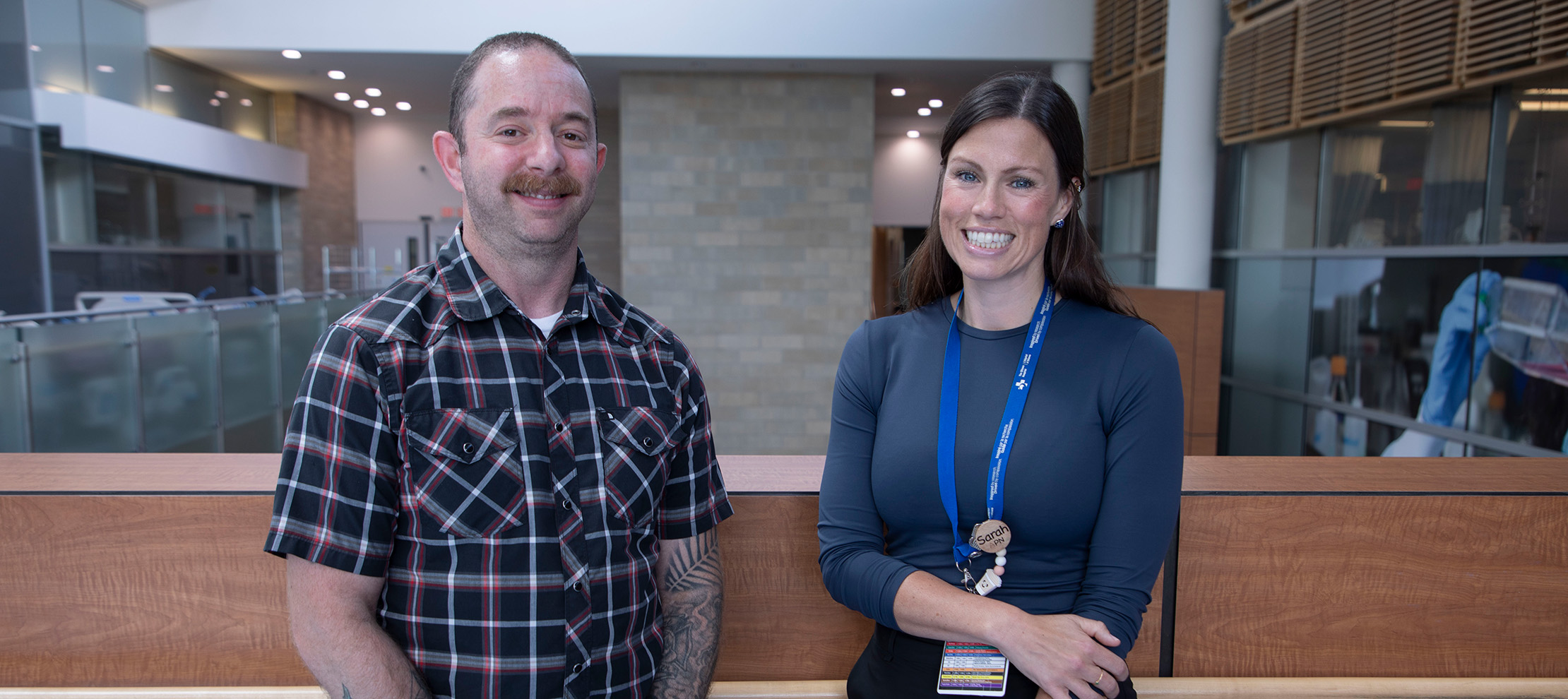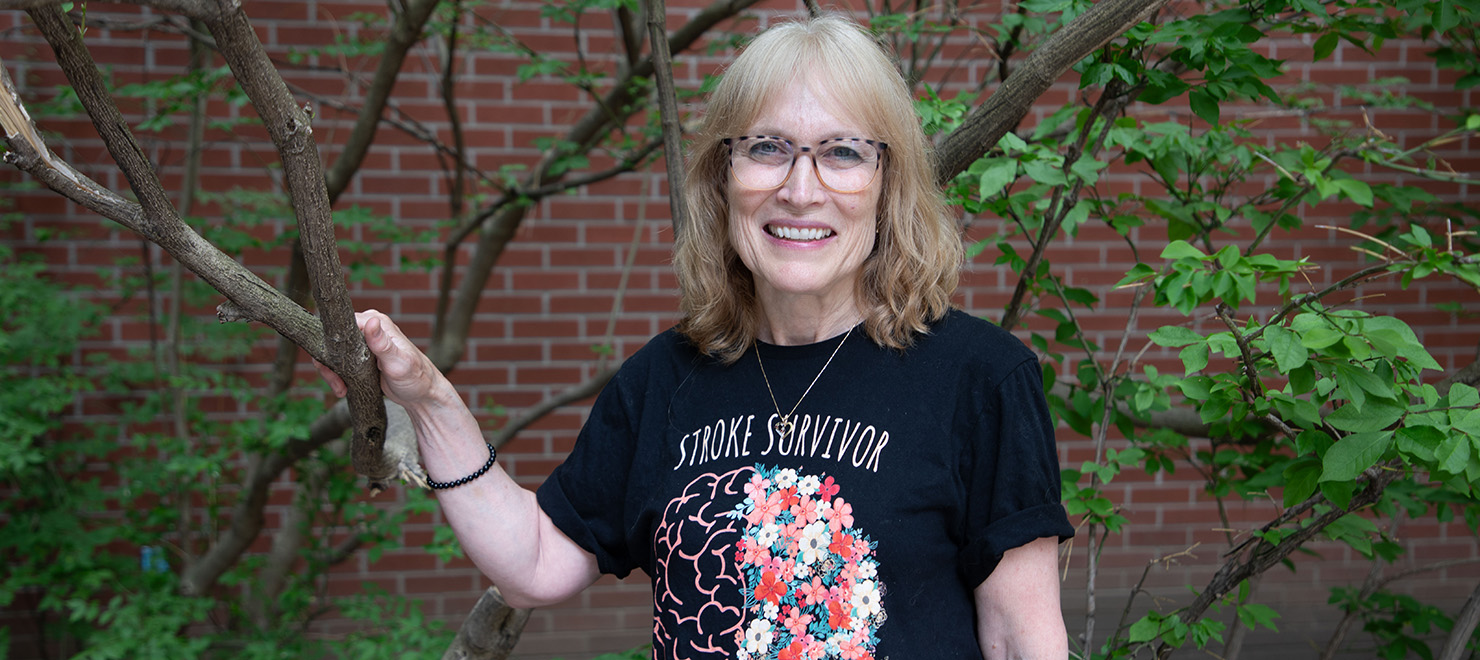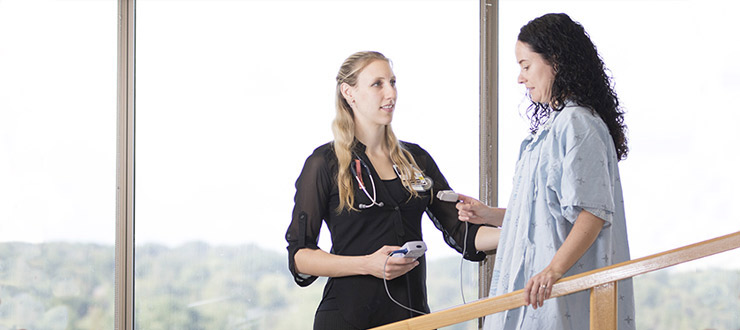
The literature backs up the benefits of ‘prehab,’ said Elyse Pratt-Johnson (left), a physiotherapist who works with patients before surgery to improve their fitness and function so they recover faster.
You’ve heard of ‘rehab’ but what about ‘prehab’?
“The name is not well known but the concept sure has had a positive uptake,” said Jane Brownrigg, Clinical Manager of Cardiac Rehabilitation at the Heart Institute, who launched the Cardiac Prehab program in December 2016. “In our Cardiac Rehab world, we have not come across any other centre in Canada offering this type of prehab programming.”
More and more, patients are working with physiotherapists before surgery, rather than just afterwards, to improve their fitness and function so they recover faster. Depending on the program, prehab may also involve screening for smoking and diabetes, counselling about what to expect before and after surgery, physical assessments or a walking and exercise program.
Kathleen Hanna, who has cystic fibrosis, worked with a physiotherapist and a personal trainer before her double-lung transplant surgery, building up her shoulder, chest and back muscles, and improving her cardio.
“I was in the best shape I could be while I was sick, so that really helped me when it came to the transplant,” said Hanna, who prepared here at The Ottawa Hospital, but had the surgery in Toronto. “I wasn’t just lying around at home. In Toronto, they were glad I was able to do the exercises.”

Kathleen Hanna, who has cystic fibrosis, built up her shoulder, chest and back muscles, and improved her cardio before her double-lung transplant surgery, helping her to recover faster.
“Absolutely, prehab helps these patients,” said Elyse Pratt-Johnson, a physiotherapist who works with thoracic surgery patients like Hanna. “When you’re going into surgery, it’s kind of like the workout of your life. Your heart rate and oxygen needs will be up. So if you train for that workout, you will do better.”
The literature backs up the benefits of prehab, said Pratt-Johnson. A 2013 study of lung cancer patients found that 59 percent of patients initially considered ‘inoperable’ were moved to the ‘operable’ category after prehab exercise training. Those who did prehab also had shorter hospital stays.
Prehab includes more than just exercises. Physiotherapists Leslie Balkwill and Marcia O’Connor lead information sessions at the Riverside Campus for patients before their joint replacement surgery. In the one-time sessions – which began in 2007 – patients learn how to prepare themselves for surgery, for their hospital stay and going home; what equipment they might need at home; and exercises to do before surgery.
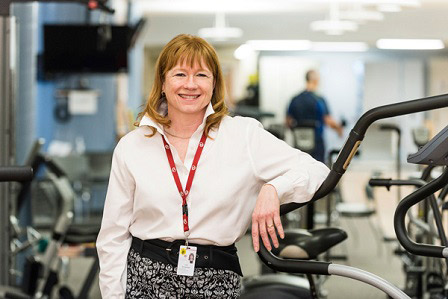
Patients who go through prehab are more likely to show up for rehab after their surgery, said Jane Brownrigg, who helped launch the Cardiac Prehab program at the Heart Institute in December 2016. Photo: Heart Institute.
“Prehab is a time when they’re hungry for the information,” said Brownrigg. “When people get instructions immediately post-op, they don’t always retain the information.”
The Cardiac Prehab program is being evaluated, but an initial finding is that those who go through it are more likely to show up for Rehab after their surgery, which reduces the risk of mortality from any cause by 27 percent and cardiac mortality by 31 percent.
“We talk about the patient being part of the team but Prehab really puts our money where our mouth is,” said Brownrigg. “Before surgery, we really do need patients to be physically active, eat well, sleep as well as they can, monitor glucose levels, quit smoking, and take their medication as prescribed.”

Support patient care and research at
The Ottawa Hospital
You might also like…
Dr. Kathleen Gartke appointed to the Order of Ontario
The Ottawa Hospital is proud to share that Dr. Kathleen Gartke has recently been appointed to the Order of Ontario, the province’s highest honour. A pioneering orthopedic surgeon, Dr. Gartke has been recognized for advancing patient care and women’s leadership in medicine.
Reimagining hospital food: How The Ottawa Hospital is transforming the patient mealtime experience
In 2024, we launched the trial phase of our Patient Food Transformation Project. The goal was to see if it is possible to improve the overall nutrition and quality of food we serve to our patients, while increasing bedside hospitality, enhancing the overall sustainability of our food services, and not increasing operational costs. Our trial wrapped in 2025 with very promising results.
Living with chronic pain? This online tool offers help — and hope
The Power Over Pain Portal is a free virtual resource hub designed to help empower youth and adults living with chronic pain through education and peer support.
New program fills gap in care for teens and young adults with cancer
For young people, a cancer diagnosis can disrupt their education, careers, relationships and family-building goals. Our Adolescent and Young Adult (AYA) Cancer Program supports AYAs on their cancer journey, complementing the care provided by their care team.
From survivor to supporter: Peer volunteers bring hope to patients recovering from stroke
Drawing on their own lived experiences as stroke survivors or caregivers, volunteers with March of Dimes Canada’s After Stroke Hospital Peer Connections program offer emotional support to those just beginning their recovery journey. Discover the difference they’re making and learn about how you can request support for a loved one — or become a beacon of hope yourself.
Sign language interpretation services at The Ottawa Hospital: 5 FAQs
Do you require a sign language interpreter when you come to The Ottawa Hospital? For patients who are Deaf or hard of hearing, we provide both American Sign Language (ASL) and Langue des Signes Québécoise (LSQ) interpretation services at no cost. Before your next appointment with us, find out everything you need to know.


 To reset, hold the Ctrl key, then press 0.
To reset, hold the Ctrl key, then press 0.
